Share your results
Please enter your email
Results shared!
We've sent a link to your email so you can access your results at any time.
Read about the many supports and services available to veterans and their families.
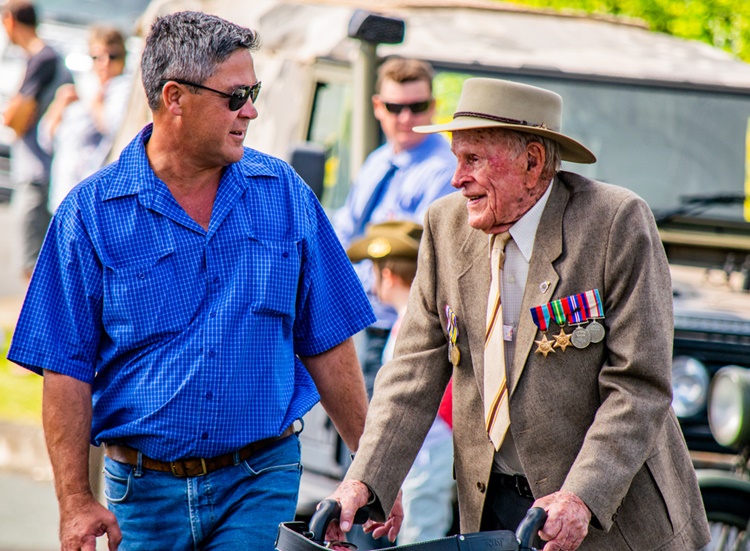
Do you hold a Veteran card with the Department of Veterans' Affairs (DVA)?
If so, you can access a range of healthcare services covered under the DVA. This includes medical care, dental care, optical care, and some subsidised pharmaceuticals.
There are also community supports available to help you.
Do you hold a Veteran card with the Department of Veterans' Affairs (DVA)?
If so, you can access a range of healthcare services covered under the DVA. This includes medical care, dental care, optical care, and some subsidised pharmaceuticals.
There are also community supports available to help you.
Read less...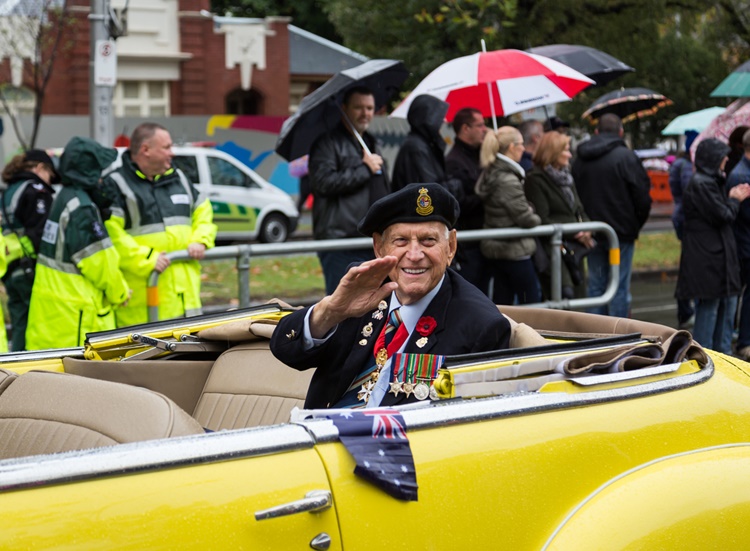
If you are a veteran or want to support a veteran, there are people who can help. There are many social groups and events run by organisations such as Soldier On.
You can find health and financial services and more. For example:
If you are a veteran or want to support a veteran, there are people who can help. There are many social groups and events run by organisations such as Soldier On.
You can find health and financial services and more. For example:
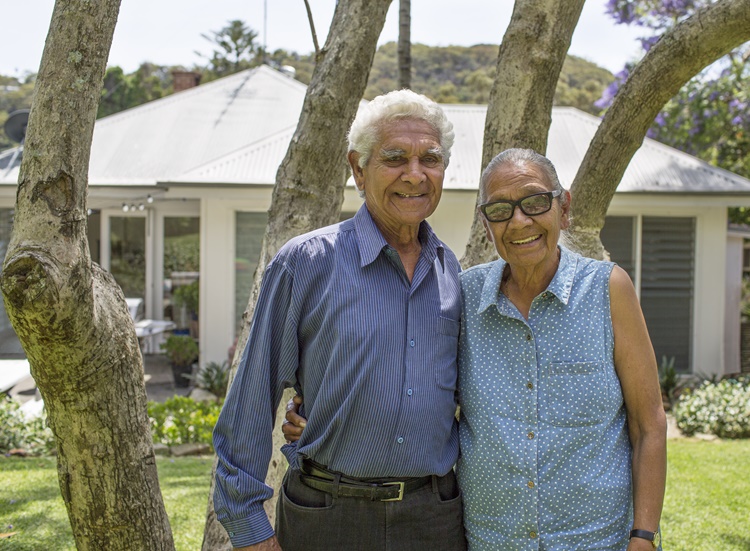
Aboriginal and Torres Strait Islander people have served in every war involving the Australian defence forces. This includes World War I and II. The participation of Aboriginal and Torres Strait Islander veterans is important to Australian history. Still, First Nations veterans have been subject to racism and discrimination, suffering inequities in areas such as education, employment, and civil liberties.
Defence & Veterans Legal Service support First Nations ADF members, veterans and their families. They provide free legal counsel, and you can ask to speak to First Nations staff.
The Department of Veterans' Affairs can also provide support services in education, health care, housing, rehabilitation and more.
Aboriginal and Torres Strait Islander people have served in every war involving the Australian defence forces. This includes World War I and II. The participation of Aboriginal and Torres Strait Islander veterans is important to Australian history. Still, First Nations veterans have been subject to racism and discrimination, suffering inequities in areas such as education, employment, and civil liberties.
Defence & Veterans Legal Service support First Nations ADF members, veterans and their families. They provide free legal counsel, and you can ask to speak to First Nations staff.
The Department of Veterans' Affairs can also provide support services in education, health care, housing, rehabilitation and more.
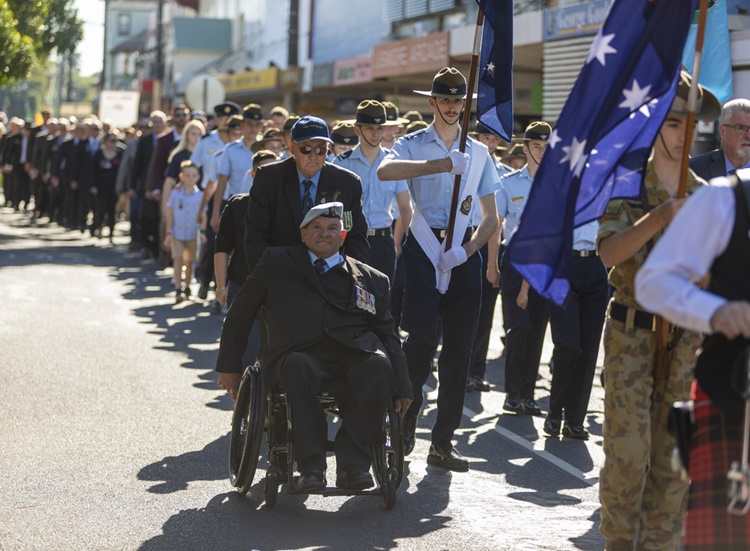
Veterans are more likely to struggle with certain health conditions and disabilities.
Both veterans and their families are at higher risk of cardiovascular diseases, including high blood pressure. Here are some simple steps you can take to improve your cardiovascular health as you age:
Veterans are more likely to struggle with certain health conditions and disabilities.
Both veterans and their families are at higher risk of cardiovascular diseases, including high blood pressure. Here are some simple steps you can take to improve your cardiovascular health as you age:

Traumatic Brain Injury (TBI) is common among military veterans. This can cause poor balance, muscle weakness, or changes in perception, as well as cognitive or personality changes. There are many treatments available that you can ask your doctor about, including:
Traumatic Brain Injury (TBI) is common among military veterans. This can cause poor balance, muscle weakness, or changes in perception, as well as cognitive or personality changes. There are many treatments available that you can ask your doctor about, including:
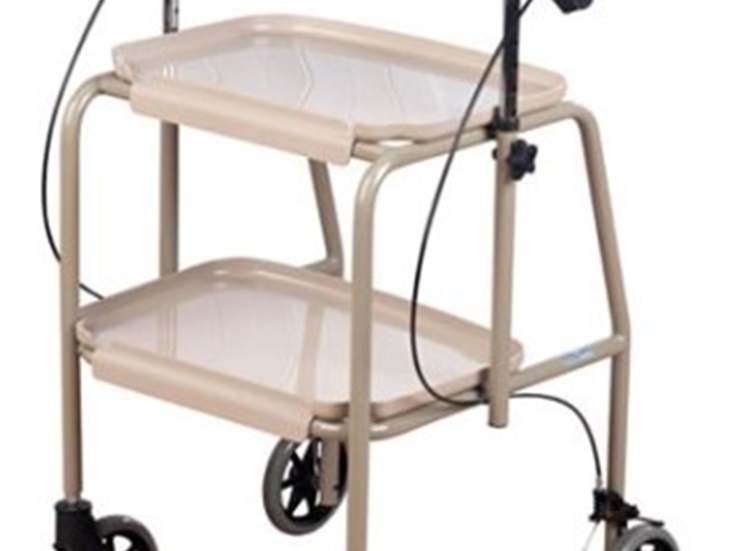
This could include wheelchairs, walking frames, ramps, shower chairs, splints, braces, and home oxygen services.
This could include wheelchairs, walking frames, ramps, shower chairs, splints, braces, and home oxygen services.
Read less...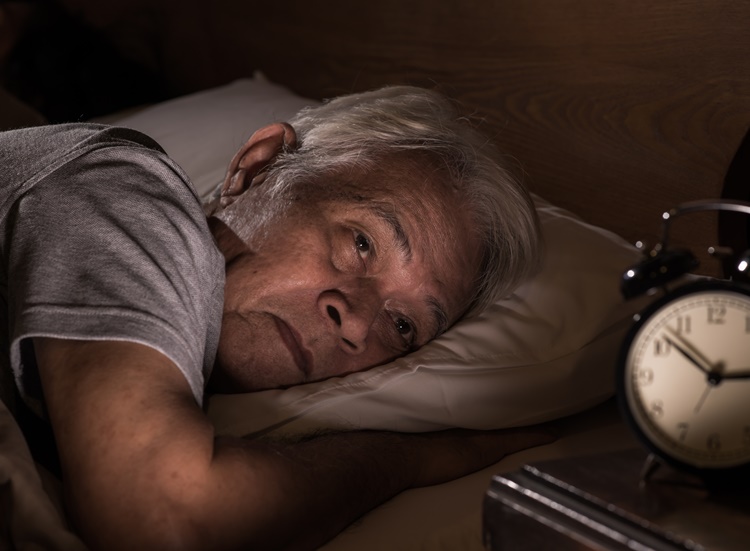
It's common for veterans to experience mental health concerns. This includes depression, alcohol dependence disorder, and post-traumatic stress disorder (PTSD). If you or someone you know may be suffering with PTSD or other conditions, there are ways to get help. You can ask your doctor about symptoms you may notice. Symptoms of PTSD can include:
It's common for veterans to experience mental health concerns. This includes depression, alcohol dependence disorder, and post-traumatic stress disorder (PTSD). If you or someone you know may be suffering with PTSD or other conditions, there are ways to get help. You can ask your doctor about symptoms you may notice. Symptoms of PTSD can include:

Call the Australian Defence Force (ADF) All Hours Support Line on 1800 628 036 for 24-hour counselling and mental health support. This service is available to all ADF members and their families.
Open Arms Veterans and Families Counselling provides free and confidential counselling to anyone who has served at least one day in the Australian Defence Force. They also provide counselling for partners and families. Open Arms can be contacted 24/7 on the number 1800 011 046.
Call the Australian Defence Force (ADF) All Hours Support Line on 1800 628 036 for 24-hour counselling and mental health support. This service is available to all ADF members and their families.
Open Arms Veterans and Families Counselling provides free and confidential counselling to anyone who has served at least one day in the Australian Defence Force. They also provide counselling for partners and families. Open Arms can be contacted 24/7 on the number 1800 011 046.
Read less...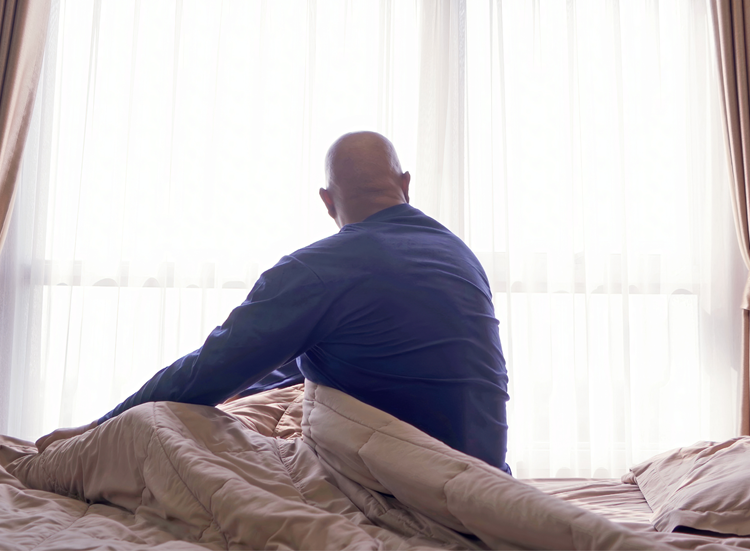
Soldier On provides health and wellbeing support. As well as employment and educational support. Call 1300 620 380.
BeyondBlue is a mental health support service. You can chat to a counsellor online or call 1300 22 4636.
LifeLine's crisis support service is available 24/7. Anyone in Australia can speak to a trained Crisis Supporter over the phone, any time of the day or night. Call 13 11 14 or text 0477 131 114.
Learn more about finding mental health support here.
Soldier On provides health and wellbeing support. As well as employment and educational support. Call 1300 620 380.
BeyondBlue is a mental health support service. You can chat to a counsellor online or call 1300 22 4636.
LifeLine's crisis support service is available 24/7. Anyone in Australia can speak to a trained Crisis Supporter over the phone, any time of the day or night. Call 13 11 14 or text 0477 131 114.
Learn more about finding mental health support here.
Read less...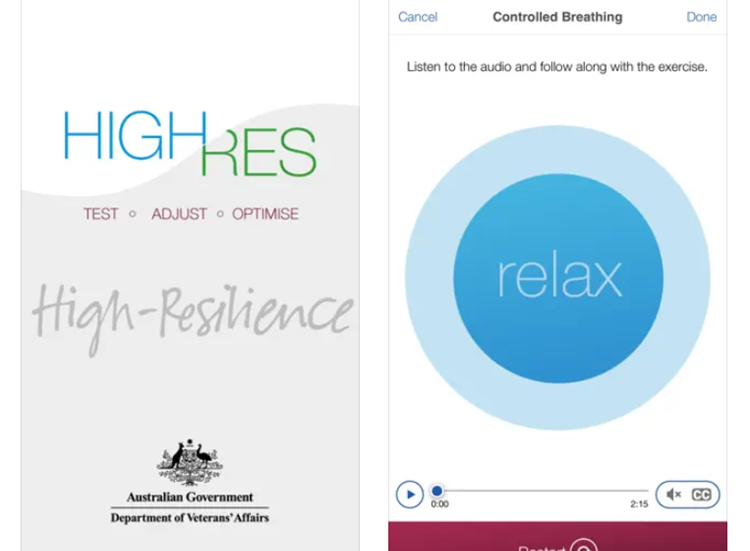
Open Arms has a resource of information about SMART (self-management and resilience training) treatment tools for veterans. There are interactive, easy-to-use tools that you can access on the go such as:
This can help you to improve your response in each moment. Over time, the training can help you to build both mental resilience and fitness.
Find out more about SMART training and other healthy ageing resources.
Open Arms has a resource of information about SMART (self-management and resilience training) treatment tools for veterans. There are interactive, easy-to-use tools that you can access on the go such as:
This can help you to improve your response in each moment. Over time, the training can help you to build both mental resilience and fitness.
Find out more about SMART training and other healthy ageing resources.
Read less...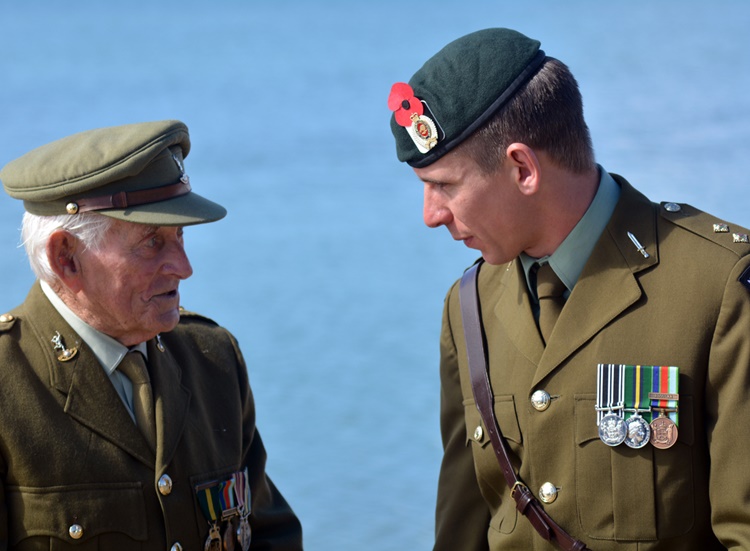
April 25 may be a difficult or isolating time of year for veterans. Participating in ANZAC Day events is a great way to find and access supportive communities. There are many ways you can get involved:
Reach out for support from loved ones or from one of the many services or helplines there for you.
April 25 may be a difficult or isolating time of year for veterans. Participating in ANZAC Day events is a great way to find and access supportive communities. There are many ways you can get involved:
Reach out for support from loved ones or from one of the many services or helplines there for you.
Read less...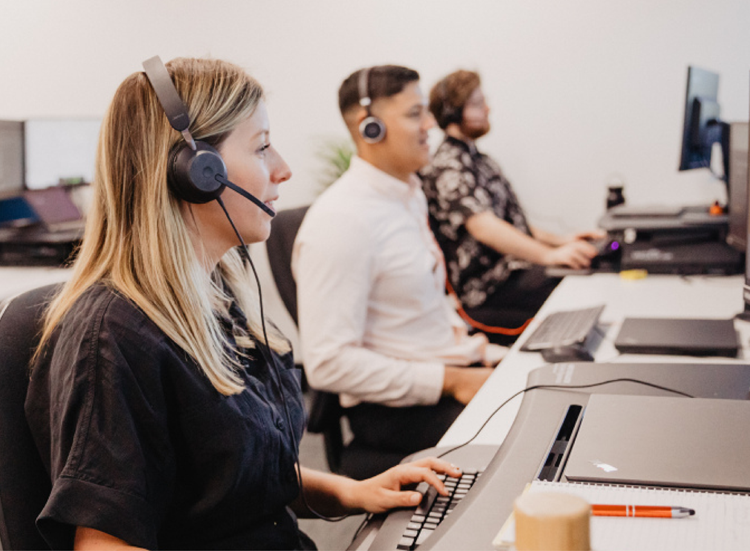
If you need more information, take the LiveUp quiz or get in touch with one of our helpful team on 1800 951 971.
If you need more information, take the LiveUp quiz or get in touch with one of our helpful team on 1800 951 971.
Read less...Australian Institute of Aboriginal and Torres Strait Islander Studies. (2022, August). Serving their country. Australian Government. https://aiatsis.gov.au/explore/serving-their-country
Australian Institute of Health and Welfare. (2024). Health of veterans. AIHW. https://www.aihw.gov.au/reports/veterans/health-of-veterans
Department of Veterans' Affairs. (2023, August). Understanding your heart risk. Australian Government. https://www.dva.gov.au/news/latest-stories/understanding-your-heart-risk
Department of Veterans' Affairs. (2023, August). High blood pressure in veterans. Retrieved November 20, 2024, from https://www.dva.gov.au/newsroom/vetaffairs/vetaffairs-vol-39-no2-august-2023/high-blood-pressure-veterans
Department of Veterans' Affairs. (2022, November). Rosemary. Australian Government. https://anzacportal.dva.gov.au/commemoration/symbols/rosemary
Department of Veterans' Affairs. (2018). Transition and Wellbeing Research Programme: Mental health prevalence report. Australian Government. https://www.dva.gov.au/sites/default/files/twrp_mhpr.pdf
Galgano, M., Toshkezi, G., Qiu, X., Russell, T., Chin, L., & Zhao, L. R. (2017). Traumatic Brain Injury: Current Treatment Strategies and Future Endeavors. Cell transplantation, 26(7), 1118–1130. https://doi.org/10.1177/0963689717714102
National Institute on Aging. (2022, July). Facts about aging and alcohol. U.S. Department of Health and Human Services. https://www.nia.nih.gov/health/alcohol-misuse-or-alcohol-use-disorder/facts-about-aging-and-alcohol
Take our easy OpenUp quiz to get personalised advice and see suggested products, services and support in your local area or online.
Let's go!